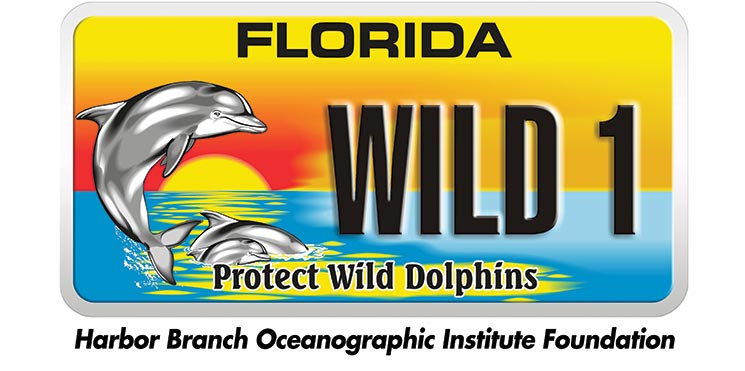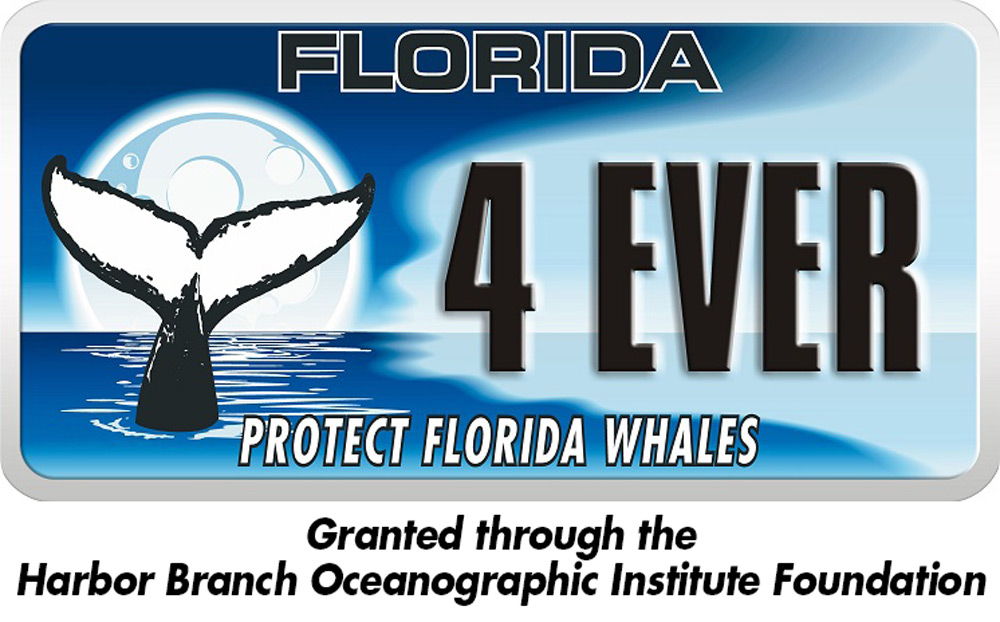Stranding and Population Assessment PROGRAM
Please report stranded, injured, or dead marine mammals to 1-888-404-3922
Please report right whale sightings to 1-877-WHALE-HELP (1-877-942-5343)
This work is funded by proceeds from the Protect Wild Dolphins and Protect Florida Whales specialty license plates granted through the Harbor Branch Oceanographic Institute Foundation.
The Florida Atlantic University Harbor Branch Oceanographic Institute (FAU Harbor Branch) Stranding and Population Assessment team acts as a service operation to the Institute and the state of Florida. We respond to marine mammal strandings, assist with necropsies, participate in cetacean rescue events, perform monthly boat-based photo identification/population assessment surveys to collect data for scientific analysis at the Institute and across Florida, and participate in outreach and educational activities.
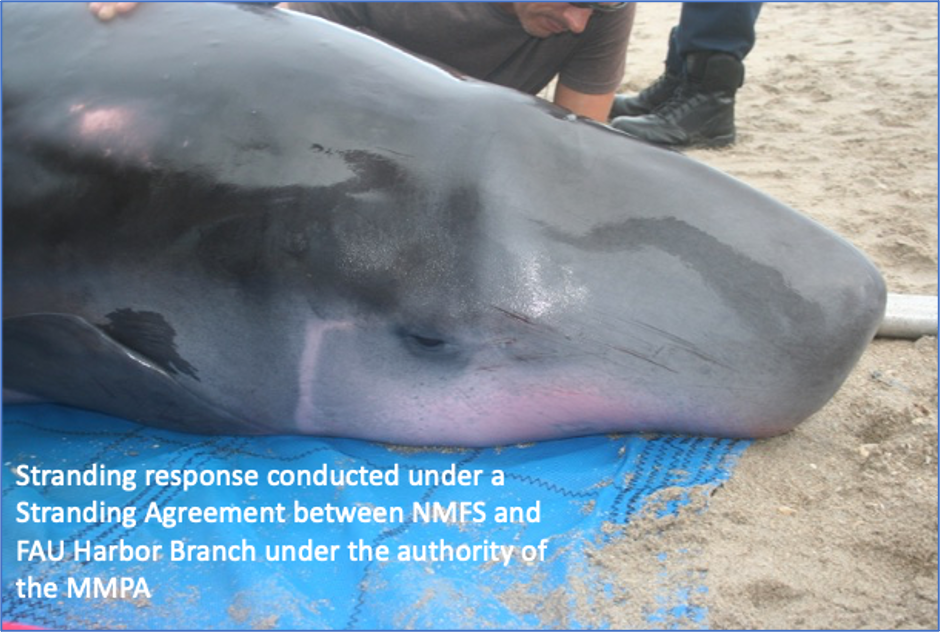 Stranding Response
Stranding Response
Since 1998, the FAU Harbor Branch Stranding and Population Assessment team operates as a marine mammal stranding network partner under a Letter of Authorization (LOA) issued by the National Oceanic and Atmospheric Administration (NOAA) National Marine Fisheries Service (NMFS). Our team responds to stranding events year-round in Indian River, St. Lucie, and Martin counties on the east coast of Florida. We also travel throughout Florida to assist our Southeast United States Marine Mammal Health and Stranding Response Network (SEUS MMHSRN) members when called upon by NMFS. We have responded to more than 242 strandings in over 20 years.
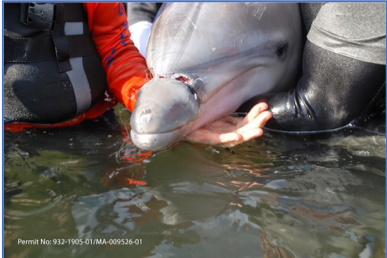 Rescue Events
Rescue Events
The FAU Harbor Branch Stranding and Population Assessment team assists in NMFS approved multi-agency network response to disentangle and/or relocate out-of-habitat dolphins through interventions. We have participated in over 54 dolphin rescues and disentanglement responses. In addition, our team assists in NMFS approved large whale disentanglement efforts offshore.
Necropsies
The FAU Harbor Branch Stranding and Population Assessment team assists with cetacean necropsies led by our clinical veterinarian, Dr. Annie Page-Karjian, and her Marine Wildlife Veterinary Medicine & Research lab. The necropsy allows for investigation and data collection that could contribute to determining a cause of death. The data and samples collected from these post-mortem exams supports ongoing marine mammal health research.
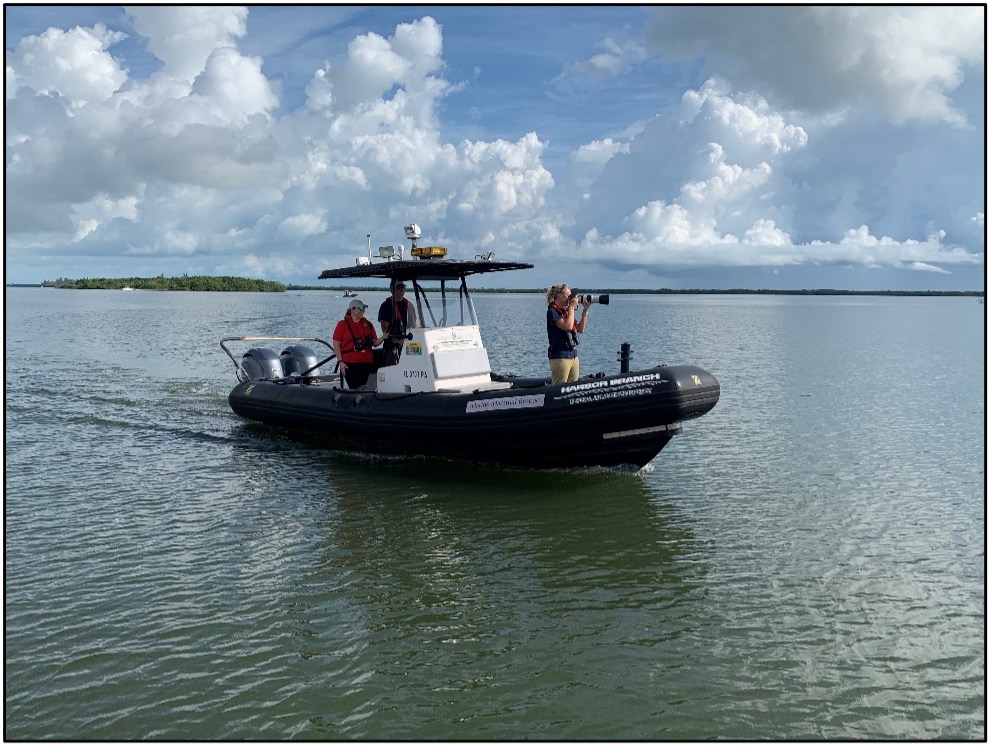 Population Assessments
Population Assessments
Our population assessment team has a General Authorization from NOAA NMFS Letter of Confirmation (LOC) # 23069 to perform monthly vessel-based photo identification surveys of cetaceans in the IRL and the Atlantic Ocean from Sebastian Inlet to Jupiter Inlet, Florida. The data collected during these surveys will be used toward research projects involving cetacean biology, ecology, behavior, social structure, health, and anthropogenic activities. Assessing free-swimming cetaceans, in addition to cetaceans that strand (in conjunction with an existing response LOA), can help in gaining a more complete picture of how changes to climate, water quality, trophic structure disturbance, harmful algal blooms, and environmental pollutants affect local cetacean populations.
Below is the list of species of marine mammals on our LOC:
Indian River Lagoon:
Bottlenose dolphin (Tursiops truncatus)
Offshore/Atlantic Ocean:
Atlantic spotted dolphin (Stenella frontalis)
Bottlenose dolphin (Tursiops truncatus)
Humpback whale (Megaptera novaeangliae)
Long-finned pilot whale (Globicephala macrorhynchus)
Pantropical spotted dolphin (Stenella attenuata)
Pygmy sperm whale (Kogia breviceps)
Risso’s dolphin (Grampus griseus)
Rough-toothed dolphin (Steno bredanensis)
Short-finned pilot whale (Globicephala melas)
 Education/ Outreach
Education/ Outreach
The FAU Harbor Branch Stranding and Population Assessment team regularly attends outreach events such as festivals, classroom presentations, virtual presentations, and in person at community centers to educate the public about our work.
To book one of our team members to speak or attend your event, please click here.
Educational Resources:
Marine Mammal Ambulance Virtual Tour
1st Grade, 3rd Grade, and 5th Grade Right Whale Educational Resources
Links:
Southeast Fisheries Science Center's Marine Mammal Stranding website


